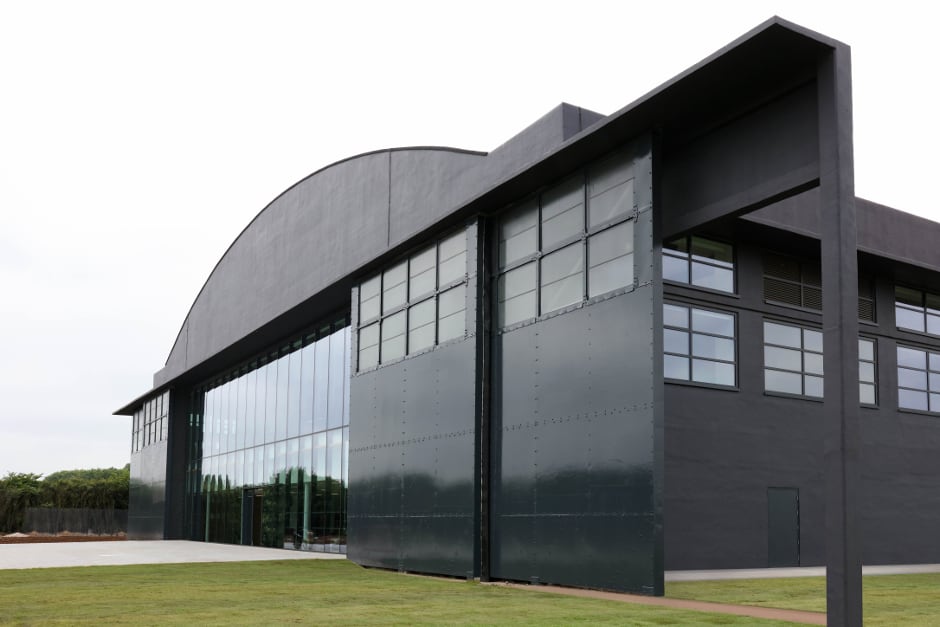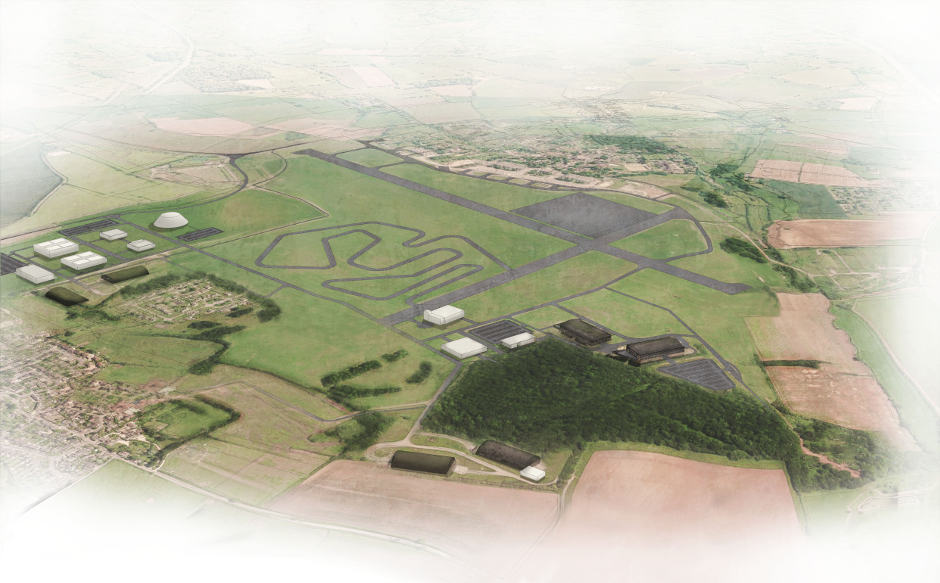
Hullavington is already home to 400 members of Dyson automotive team following an £84m investment into the former RAF base which occupies 517 acres in the Cotswolds. Phase one development has seen two aircraft hangars restored and three more are reportedly on course for delivery, creating an extra 15,000m2 of testing space.
Phase two - which could bring investment at the airfield to £200m - outlines 45,000sqm of new development space that could accommodate over 2,000 staff.
Test facility proposals include a dynamic handling track, a vehicle stability dynamic platform, an off-road route, a hill and handling road route, plus a fast road route and test slopes.
Dyson CEO Jim Rowan said: “Our growing automotive team is now working from Dyson’s …hangars at Hullavington Airfield. It will quickly become a world-class vehicle testing campus where we hope to invest £200m, creating more high-skilled jobs for Britain. We are now firmly focused on the next stage of our automotive project.”
In September 2017 Dyson revealed it would be investing £2bn into the development of a battery electric vehicle platform for launch in 2021.

The testing track proposals include:
- Dynamic Handling Track – a specialised track to assess and tune all aspects of ride, handling, steering and brakes
- Vehicle Stability Dynamic Platform for testing vehicle manoeuvrability
- Off-Road Route – a mixed driving route that simulates the challenges of driving off-road through soft and varied terrain
- Hill and Handling Road Route – a simulation of a challenging fast road route incorporating corners of differing severity and changes in altitude
- Fast Road Route –a track to test a vehicle up to its maximum speed as well as the functionality of advanced driver assistance systems
- Test Slopes – differing gradients for testing powertrain functionality
Source: Dyson




Labour pledge to tackle four key barriers in UK energy transition
I'm all for clarity and would welcome anyone who can enlighten me about what Labour's plans are for the size and scale of this Great British Energy....